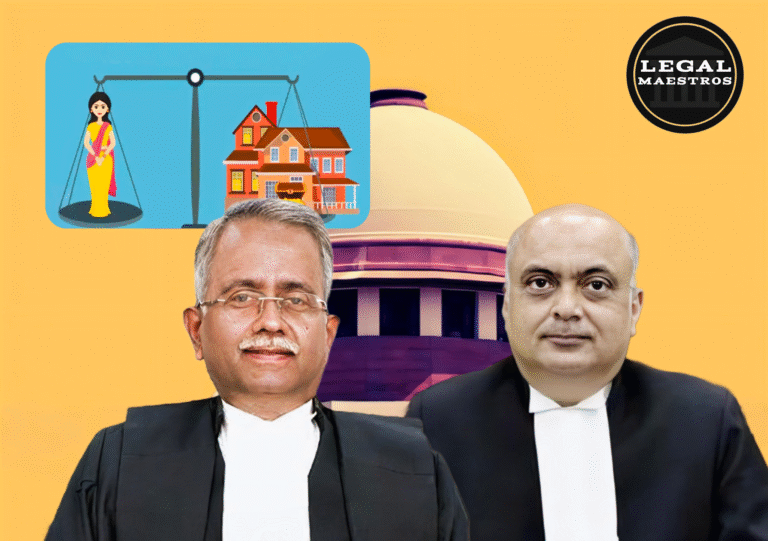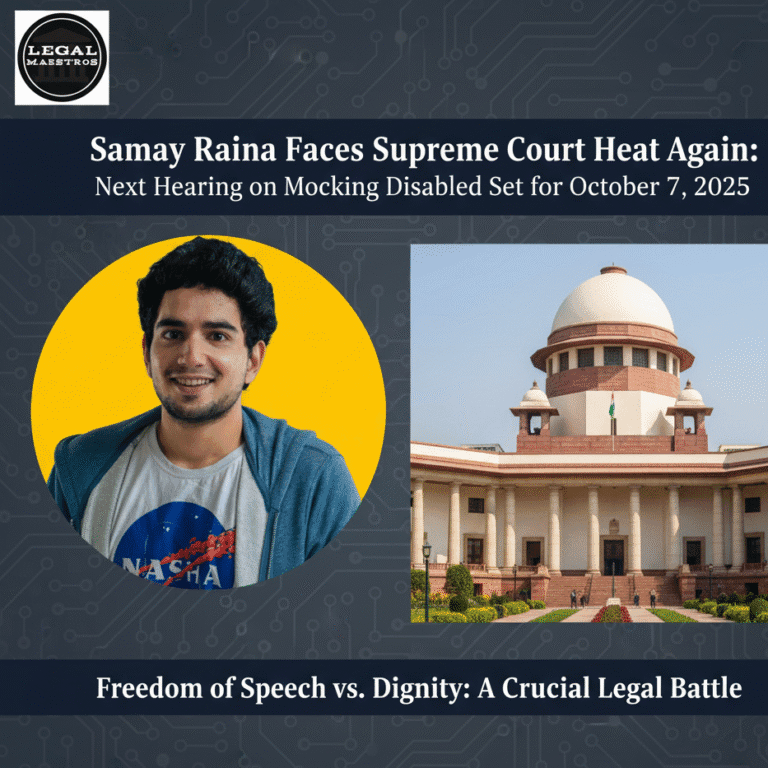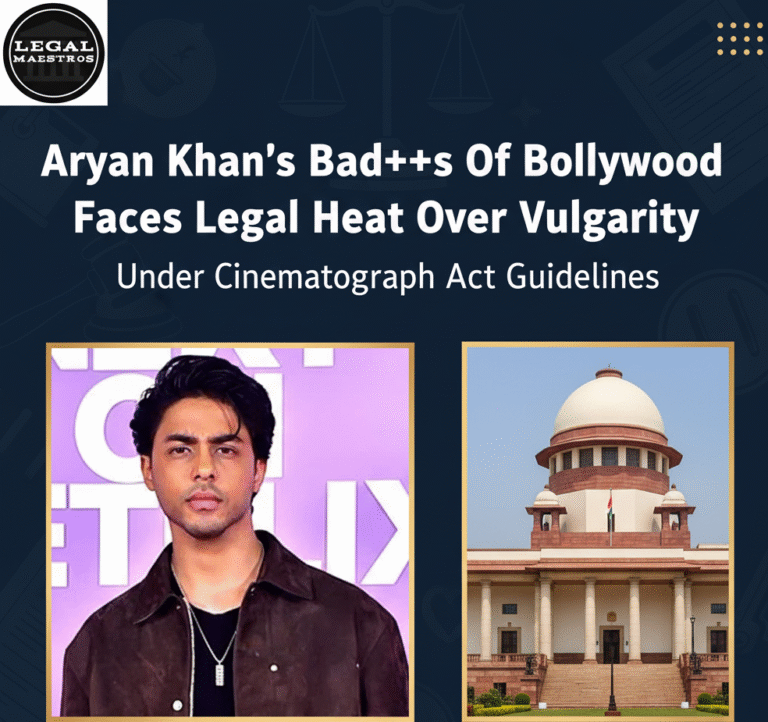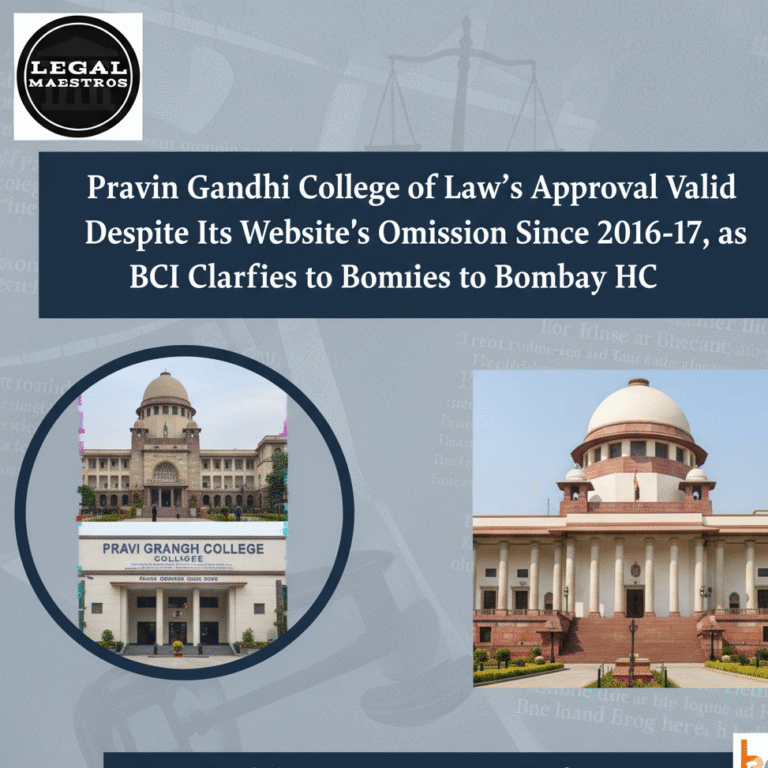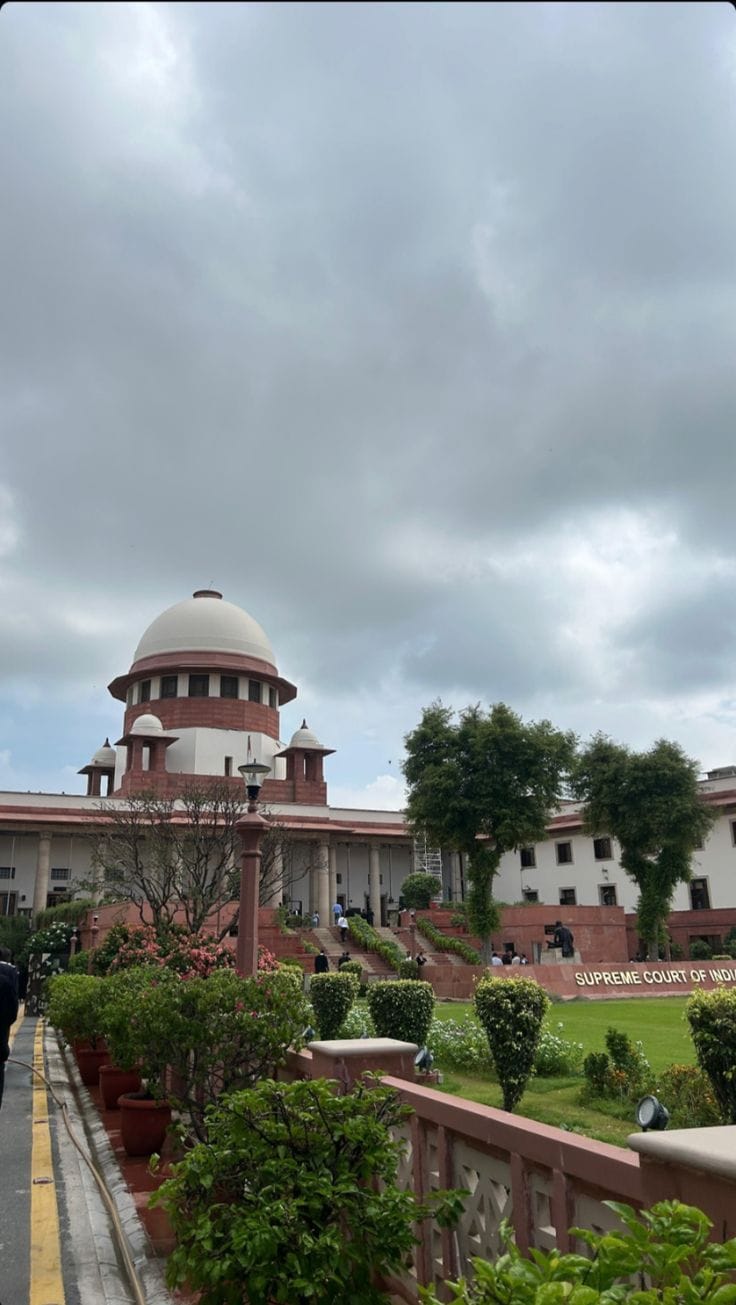
The Supreme Court of India on Friday, 18 July 2025 rendered a landmark judgment in Kaushal Singh Vs. State of Rajasthan holding that High Courts must exercise restraint and no strictures could be imposed by them on lower judicial officers in judicial orders. The ruling not only declared null and void the harsh comments of the Rajasthan High Court against a District Judge but also provided much-needed clarity on the proper approach to dealing with grievances related to judicial behavior in the Indian judiciary.
Facts
Kaushal Singh, Rajasthan District Judge Cadre Judicial Officer had protested against the 3 May 2024 order of Rajasthan High Court in which it had criticized his bail order granted to an accused. The protest was in respect of FIR No. 224 dated 2022 under various sections of the Indian Penal Code, i.e., Section 307 (attempt to murder).
The bail application of the accused Sethu @ Angrej passed through a series of steps: rejection in the first instance by a magistrate and subsequent grant of bail by Kaushal Singh as a link Sessions Judge. The High Court, turning down a subsequent bail plea made by the same accused, made stern observations against Kaushal Singh, terming his bail order as “grossly inappropriate and cavalier” and holding him guilty of negligence, indiscipline and “disobedience of orders/judgments” of the High Court.
Arguments
For the Appellant (Kaushal Singh):
- The main argument was that the High Court order convicted him without hearing opportunity, contrary to the doctrine of natural justice.
- The Appellant’s Counsel quoted Supreme Court rulings, including Re: ‘K’, A Judicial Officer, advising against judicial orders enregistering strictures on the subordinate judges without fair procedure.
- It was also brought into focus that the presumptions of misplaced criticism by the High Court were particularly made keeping in mind that the order in Jugal Vs. State of Rajasthan (directing tabulation of criminal antecedents in detail in bail orders) had been overruled by the Supreme Court in Ayub Khan Vs. State of Rajasthan, erasing the apparent non-compliance laid at Kaushal Singh’s door.
For the State:
The State primarily relied upon obtaining the observations of the High Court to be in accordance with upholding judicial discipline and adhering to principles while granting bail, more particularly keeping the criminal history of the accused in mind.
Judgment
The Supreme Court allowed the appeal of Kaushal Singh and held that:
- The High Court erred in personally and defamatory observations of the Judicial Officer within a judicial order, especially without affording him an opportunity of hearing. This runs contrary to the established constitutional and legal principle of judicial independence and procedural fairness.
- Aforementioned basis of criticism, criminal antecedents had to be listed in a specific manner when determining bail applications as outlined earlier in Jugal Vs. State of Rajasthan fell out of good law with the Supreme Court overruling it in Ayub Khan Vs. State of Rajasthan. The basis of non-compliance on this aspect by the High Court was thus untenable considering.
- Referenced Re: ‘K’, A Judicial Officer and Sonu Agnihotri v. Chandra Shekhar, the Court strongly reiterated that criticism of the subordinate judges, if any, must be made by way of administrative and not judicial redressal, so that an opportunity can be given to the officer to explain or justify their act.
- The Supreme Court further commented that thoughtless observations or remarks in judgements cause irreparable harm to the reputation, morale, career of judicial officials and erode institutional faith.
All negative personal remarks and strictures against Kaushal Singh were thus struck out of the order of the High Court.
Analysis
This ruling is astounding on several counts:
- Procedural Fairness: The Supreme Court reaffirmed the fact that junior court officials must never be censured unheard in a court order. There is definite recognition of the fact that they must be allowed to reply or explain before an adverse finding can be made on record.
- Judicial and Administrative Distance: The Court made it clear that specifically, courts of appeal may condemn erring orders but not use personal insulting language on the judge’s conduct in public judgments. An attack on the conduct of a judge shall be dealt with administratively, in confidence, and with room for defense.
- Limiting Binding Directions: The Ayub Khan court clarified that administrative templates or directions for bail orders (for example, tabulated antecedents) are, at best, advisory and non-binding and, as such, protect judicial discretion and prevent unnecessary procedural stiffness.
- Systemic Suggestions: The Supreme Court, instead of giving new guidelines on bail applications, invited each High Court to make explicit disclosure of criminal background in bail applications compulsory and place the burden on the applicant instead of the judge, and make bail proceedings open as transparent, systemic, and fair ones.
Effect
- This decision enhances security for lower court judges, strengthening their independence and morale.
- It delivers a very strong message to High Courts and courts of appeal to exercise restraint and follow natural principles of justice in adjudging the behavior of the lower judiciary.
- The decision will become part of High Court procedural rules across the country, since the Supreme Court has created guideline standards requiring revelation of all criminal activity by individuals accused while seeking bail.
Conclusion
The Supreme Court Kaushal Singh Vs. State of Rajasthan decision is the poster child for judicial restraint and impartiality in the Indian legal system. By removing excessive denigration of a lower judge and clarifying the difference between judicial and administrative censure, the Court has upheld the doctrine of procedural justice, maintained the integrity of the judiciary and set guidelines for future cases across the country. This decision will be utilized as a precedent to direct administration of judicial review by junior officers and create a more respectful, accountable process within the judiciary at large.
Coram
Justice Vikram Nath
Justice Sanjay Karol
Justice Sandeep Mehta
Sources
For any queries or to publish an article or post on our platform, please email us at contact@legalmaestros.com.




